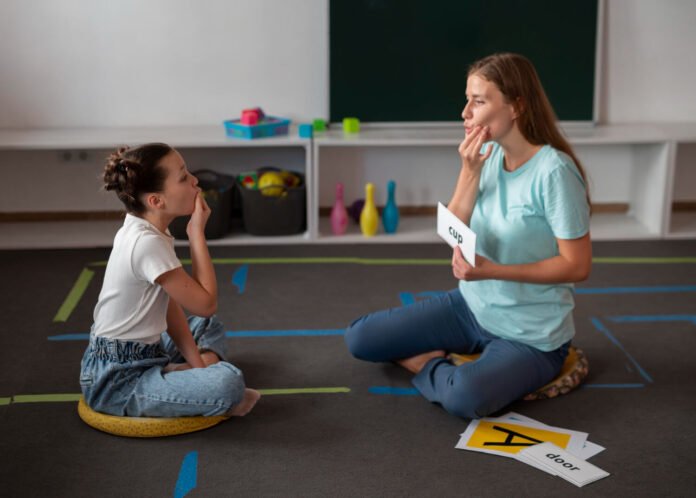Speech & language therapy is a crucial medical care service for kids with communication challenges. Communication is an important aspect of academic, emotional, and social development. Kids with language and speech difficulties can struggle with taking part in a social situation, understanding others, and expressing themselves. But through speech therapy, your child with behaviour and speech challenges can benefit from the following:
Table of Contents
1. Improve Self-Esteem
Speech therapy can greatly improve the self-esteem of your child. It can make your child feel better about their skills of communicating, which in turn may help to feel far much better about themselves. It can help to find an occupational therapist who will ensure your kid discovers better and newer ways of expressing themselves and building their skills of communicating. This, in turn, will help your child to feel more independent and confident, enabling them to boost their self-esteem.
2. Better Tools for Parents to Support Their Kids
A good behaviour therapy session will provide you with a solid framework you can incorporate into your kid’s everyday life at school and home. Although trusting relationships between kids and therapists are important, families are urged to practice those skills outside the session for maximum impact. This involvement helps to empower parents to take active roles in the victories and well-being of their kids, shifting them from caretaker roles to cheerleaders.
3. Safer Space for Kids to Process their Emotions
Helping kids process all their emotions is an important part of the puzzle that a behavioural therapist provides. One form of therapy, which helps in that is ACT (Acceptance and Commitment Therapy). It is designed to offer kids an understanding and safe environment where they may freely acknowledge and express what they feel. ACT goes far beyond helping kids identify all their emotions. It as well motivates them to access those emotions instead of trying to suppress or avoid them. Acceptance is one of the first steps to learn how to cope with and manage feelings, which seem very overwhelming.
4. Early Intervention for Language and Speech Delays
Speech therapy improves early communication abilities in toddlers and babies with language and speech delays. It concentrates on building a ‘serve and return’ interaction where the kid’s gestures or babbles, and you as a parent, respond with gestures, words, or eye contact. This back-and-forth process builds the basis for communication. A speech therapist coaches and models parents to maintain the return and serve flow. The expert also works on skills, such as encouraging vocalizations and responding to the name of a child.
5. Understand Body Language
Observing other people helps to develop a better understanding of body language. The skills are important for communicating with other individuals through stances, gestures, posture, and facial expressions. If your kid doesn’t learn how to practice and identify those interactions naturally, speech and behavioural therapy may help. For instance, the therapy may teach your kid with autism to identify and know how to use body language.
The bottom line is that integrating behavioural and speech therapy programs is important for the very comprehensive development of a child requiring special care. By addressing emotional well-being, language development, and foundational skills, you can help your child to reach their full potential.








